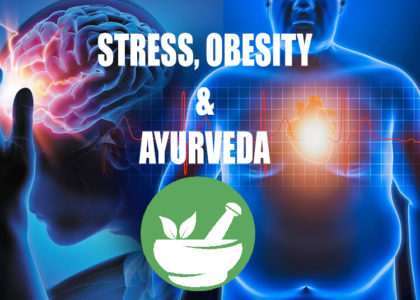Dear readers,
Thank you so much for responding well to my last two blogs about mantra and ramraksha. Today I am writing after a month, but I am sure we will be meeting through blogs fortnightly now onwards. Please give feedback and also write in comment box, if any particular topic you want me to write about.
Today people are in general conscious about fitness. Still, we miss out one simple and important method to stay fit. We all know it very well. It is nothing new but fasting.
Fasting is one of the important ways to detoxify body. But do you know it is a natural way of detoxifying your mind? Let us understand fasting better from the eyes of Ayurveda and Vedic culture.
Well, in this blog I am not going too science oriented as many authors have given very nice explanation about fasting and it is available online. My intention is to make you understand the need of fasting in today’s lifestyle and mindset in general.
Today we are running constantly behind something. It can be our job/business, can be our degree or education, it can be achieving health, it can be monetary gain, it can be stabilizing relationship…the list has no end. In this fast journey we try to give rest to body, but what about mind? Dear friends, it is working 24×7 nonstop. Your heart and lungs also work slowly once you enter in deep sleep. But the most important factor of your health, your mind is sidelined.
Many try meditation, pranayama or some other types of mind calming therapies like shirodhara. But one has to remember our mind stays in our body and this body need to follow some rules for maintaining mental and physical health.
Reasons why Fasting is included in our routine are:
· It gives proper rest to our major systems.
· It cleanses body and removes toxins from our body.
· It boosts immunity.
· It increases mental strength.
· It reduces sluggishness or laziness.
· It keeps check on our overeating and ultimately helps maintaining body weight.
· It increases concentration.
· It burns fat and helps losing weight.
· In Hindu culture fasting is said to be a process that nullifies our sins or bad deeds.
Let’s see few things related to mental health and fasting.
Many of us do fasting for religious reasons or for bodily benefits, but our ancestors have included fasting in our routine for other purpose also.
Whatever we do in our life basically is to make a living & satisfaction ultimately. While leading the course of life, we forget the purpose i.e.Satisfaction, contentment. To be contented we must know how much we want and where to stop. To develop this mentality, we must have mindset to control urges/ temptations. This sounds very easy but is very difficult to apply in real life. It is very easy to advise others but very tough to implement in our own life. This needs determination and that can be achieved by fasting. Sounds foolish? Our elders knew that it’s never easy to avoid temptations in life, be it food / money/ comforts or anything else. So, they have advised three types of fasting. If you can follow all these kinds of fasting, you will be living a life of bliss for sure.
Fasting is described as upavasa in Ayurveda. Word upavasa has two words- upa and vasa. It means staying (being) with God. The word God describes the soul (jeevatma who is in connection with paramatma) i.e.it is an inward journey towards eternal peace. To attain this, three types of upavasas are suggested. Each one is harder than the earlier. They are-
1. Kayik (fasting by body i.e. Restricting food, water)
2. Vachik (observing complete silence or to talk only when necessary)
3. Manasik (staying away from all types of greed, grief, fear, jealousy etc.)
One cannot try all these types all of a sudden. Initially we must start with kayik upavasa.
All these upavasas are advised to practice for attaining manonigrah (straining of mind). It has to start with controlling your urges to eat which is the first step. Mind is very unstable and taming it needs step by step efforts. Next to eating we must control urge to talk. Usually, our thoughts are followed by immediate reaction (talk). This habit create mental stress or relationship issues many a times.
KAYIK UPAVASA:
This is described as one of the types of Langhana in Ayurveda. This can be done by two ways.
a. Avoiding solid food completely but can have liquids.
b. Avoiding all liquids including water along with solids.
Ayurveda describes upavasa predominantly for bodily benefits and some of psychological benefits. It mainly acts on five karmendriyas.
· It is defined as the abstinence from all the four types of food (licking, chewing, swallowing, drinking) executed in systemic form.
· When food is undercooked, overcooked or stale, it creates toxin known as ama. This ama blocks different channels (stotasas) in the body. This affects the nutrition at cellular level and results in diseases.
· रोगा: सर्वेsपि मंदाग्नौ:|| origin of majority of the diseases lies in weak digestive fire (manda jatharagni). So ama which weakens the digestive fire needs to be eliminated on regular basis. Fasting is the ideal and perfect way to achieve this.
· Ayurveda recommends intermittent fasting over long duration fasting. Fasting keeps all the basic constituents of body (vata, pitta, kapha) and psychic (satwa, raja, tama) in harmony and balanced condition. So weekly fasting on specific days or fasting on specific day of the month is advised under the cover of religious rituals in Hindu culture. Same way different type of fasting is advised by many other religions also. Everywhere motive is same, keeping your mind and body free from toxins.
· Fasting is advised as per predominance of doshas (prakruti), age, desh (atmosphere in the area you stay) and bala (strength of a person). Kapha predominant person can fast for longer duration whereas vata and pitta predominant person should fast for short duration. Intermittent fasting with light food intake like fruits, fruit juices, panakas (lime juice etc.) buttermilk, milk, curd, dates, dry fruits, etc. is preferred over eating sago, potato and excessive fatty food.
· Chanting of mantras during fasting is also very beneficial to get both physical and psychological changes.
· Fasting should be intermittent and periodic.
· In diseased condition, intensity of the disease decides nature of fasting. Dosha predominance decides duration of fasting.
Mild intensity -fasting itself acts as treatment.
Moderate intensity – fasting with digestive food (food that ignites jatharagni) intake is advised.
Severe intensity – fasting with purification (panchakarma therapies) is advised.
· Indications of fasting as per Ayurveda-
Jwara(fever), kasa(cough), sthaulya(obesity), kushtha(skin diseases), chardi(vomiting), atisara(dysentery/diarrhoea), madhumeha(diabetes), urdhwa jatrugata roga, shiroroga(diseases above neck), mootravaha stroto vyadhi(urinary disorders) etc.
· Contraindications-
Vataj vyadhis, krisha vyakti(emaciated), balya (very young/children), vriddha (very old), garbhini(pregnanat lady),kshudhit(hungry), trisharta(thirsty), emotionally imbalanced (anger, hatred, hurt etc.)
VACHIK UPAVASA:
This is harder than the kayik upavasa. After controlling temptation to eat one must try to control urge to talk or react. It acts on five dyanendriyas. It can be of two types.
a. Observing complete silence(maunam)
This needs determination to practice. Bhagadvadgeeta in its 16th chapter describes
मन: प्रसाद: सौम्यत्वम् मौनम् आत्मविनिग्रह:|
भावसं शुद्धि: एतत् तपो मानसमुच्यते|| भ.गी.17/16
Contentment of mind; pleasant, mild temperament; silence; meditation with faith and good, pure thoughts reflect real control of one’s mind.
Silence initiates inner journey towards eternal peace and happiness. Instead of talking with others you are supposed to be in connection with your soul.
Maunam or observing silence is not easy and not for a common man like us. It is practiced by spiritually active people. But to start with we definitely can observe silence for few minutes a day compulsorily. This will help us to focus on our goals.
As I mentioned above all these lusts, greed, attachments etc. start with our reactions and actions and expectations. So, silence keep us away from all these automatically and help us stay mentally strong n healthy.
b. Talk only when it is necessary(mitabhashananm) –
We the common people can try this type of upavasa to keep ourselves fit mentally and emotionally. More the talk, more the desires & complications. We see it on daily basis that relationships, attachments, expectations are the real cause of stress. So, cutting down unnecessary talk can save you from unwanted stress most of the times though not always.
So, one should always think before talking, is it really necessary to talk or react now? And answer would be NO most of the times. This helps in conserving energy.
MANASIK UPAVASA:
This the hardest among all upavasas. Here one is supposed to restrain mind from all worldly pleasures and mental enemies(shadripu). They are – kama (lust), krodha (anger), mada (ego), matsara (jealousy), lobha (greed) and moha (attachments). Take a break and think, aren’t these 6 enemies create problems in our life? Our relationships, our finances, our education, our attachments are the main cause of stress and ill health today.
So apart from physical benefits of fasting this, manasik upavasa (mental fasting) make our life more meaningful and contented. Ayurveda believes in this principle. Complete health includes healthy body and healthy mind.
A lot can be explored in this topic. But for time being let us stop here. If you want to know more about manasik and vachik upavasa please leave a comment in comment box.
So, when you practice basic kayik upavasa, your mind become strong to restrain from different varieties of food. So, start with kayik upavasa and practice other two as per your capacity. Good luck!
One message for all through this blog is think of fasting as a continuous cleaning process. It needs persistence.










